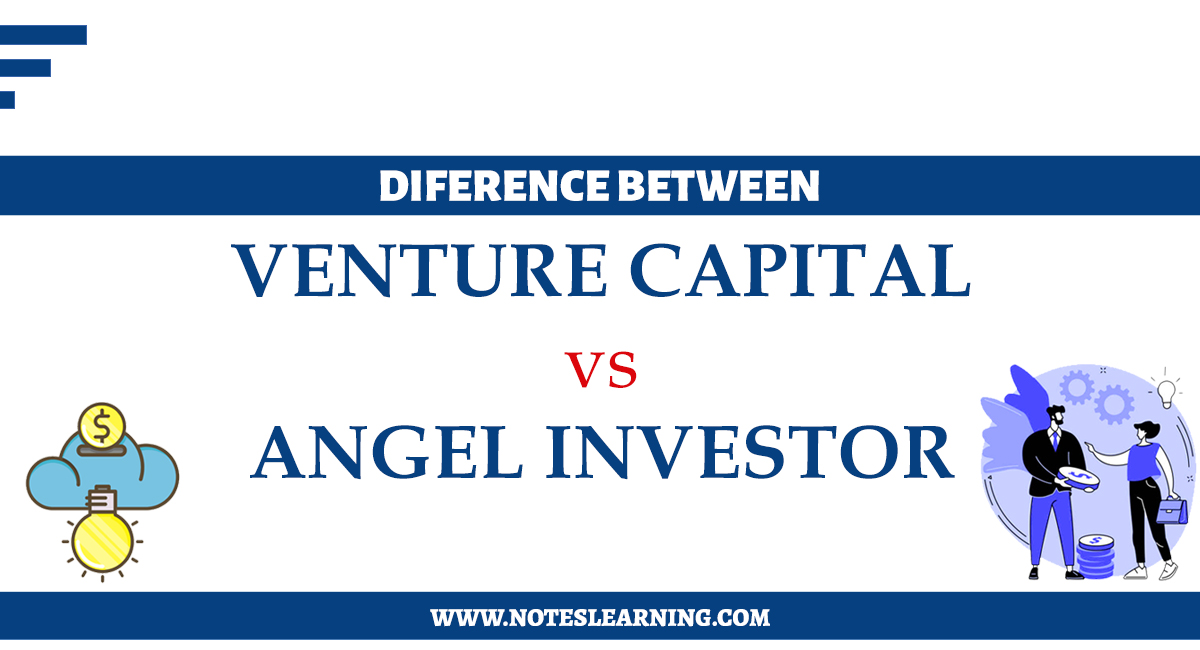Introduction
Venture Capital and Angel Investor are two crucial financing sources in an entrepreneurial ecosystem. Both of these aim to support promising startups and drive innovation. In layman terms, both of these financing sources are used synonymously and most of the time misunderstood.
Venture capital firms are institutional investors whereas angel investors are typically affluent individuals who invest their capital mostly in early stages of startups. Understanding the differences between these sources is insightful for enthusiasts as sources operate in different modality. These sources benefit the business or startups differently at different stages hence, understanding their function, roles definitely helps. Some of the basic differences between these two terms, venture capital and angel investor, are discussed below.
Difference Between Venture Capital and Angel Investor
| Basis | Venture Capital (VC) | Angel Investor |
| Definition | Venture Capital, in general, refers to a form of private equity financing provided by institutional investors, venture capital firms to an early-stage business or high growth companies with calculated growth potential. | An angel investor, as the name suggests, is an individual who invests their personal funds in early stage startups or any entrepreneurial ventures for equity ownership or convertible debts. |
| Investment Stage | VCs can invest in different stages, including early-stage, growth stage, and even in late-stage. | Angel investors mostly and usually invest in early-stage startups. |
| Sources of Funds | VC pool funds from different sources such as institutional investors, pension funds, and corporations. | For angel investors, the personal fund of the investors is the only source of funds. |
| InvestmentCriteria | VC has a checklist for making an investment such as industry focus, geographical preferences, revenue model, period of return etc. | Angel investors have flexible investment criteria. Apart from startup details, angel investors can invest based on personal interest or expertise. |
| InvestmentAmount | Venture capital invests large amounts of capital. They may have multiple rounds of fundings. | Angel investors invest as per their capital availability. Generally, angel investors invest in smaller sums. |
| Decision Making Process | VC has a formalized decision making process. It requires multiple partners and investment committees for making decisions. | Angel investors analyze and make investment decisions on their own. |
| Risk Appetite | VC are comparatively more risk-tolerant due to the size of the capital and resources they have. VCs can invest in higher-risk ventures. | Angel investors are more conservative. The risk appetite depends on the nature of the investor. It may vary but the appetite is low. |
| Investment Time Frame | VC has defined a time frame while making the investment and expects the return in the defined time frame, generally around 5-10 years. | Angel investors have more flexible time terms. They may make a long term investment and flexible return frame. |
| Capacity | VC provide networking, connections, operational support, management support to their funded businesses. | Angel investors provide guidance and support with whatever capacity they are in. |
| Exit Strategy | VCs exit after their commitment time period either through IPO or through acquisition. | Angel investors negotiate their terms of exit and are flexible with exit options. |
| Ownership and Equity | VC firms take a huge ownership stake in the invested firms considering the risk and return portfolio of the firm. | The terms and conditions of the ownership are flexible and based on the agreement. |
Reference

